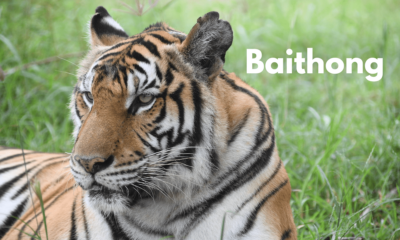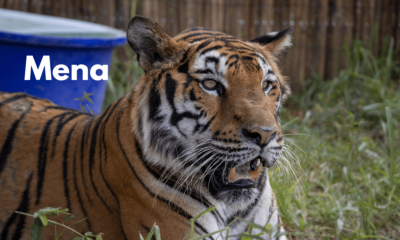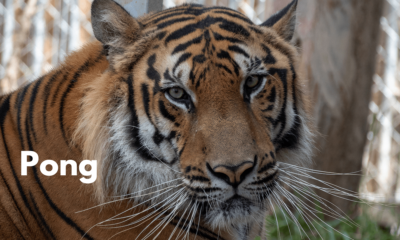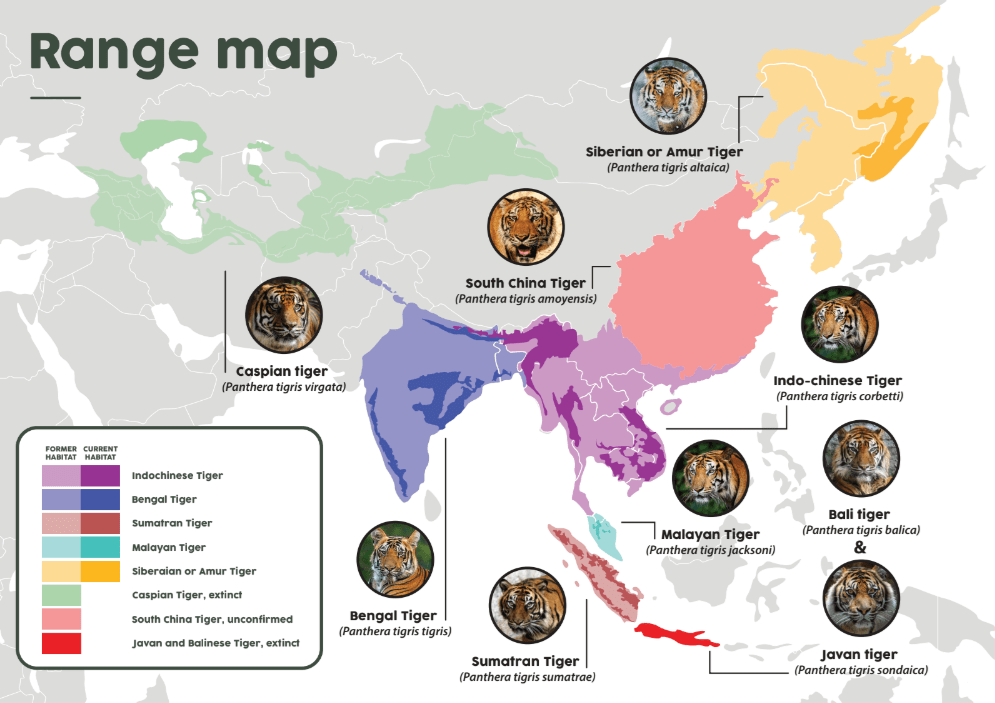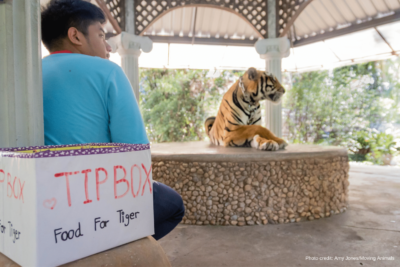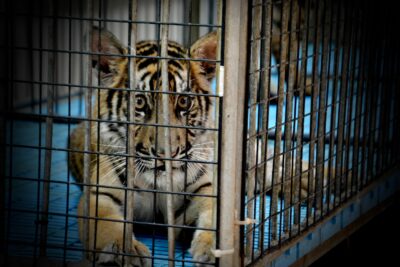It’s estimated that there are only around 150 tigers left in the wild in Thailand. This number is at constant risk from illegal poachers who sell tigers as exotic pets or to unethical zoos, or use their body parts for use in traditional Chinese medicine. As well as the threat to wild populations, hundreds of captive tigers across the country suffer horrendously in unnatural living conditions as part of the tourism industry, where these animals are often tormented and abused until they become obedient.
That’s why we’ve opened the Tiger Rescue Centre at WFFT, where we can rescue and rehabilitate captive tigers, and offer a forever home to those who cannot safely be returned to the wild. As Asia’s biggest tiger sanctuary run by an NGO, the tigers can live freely in acres of near-natural habitat. The centre also helps our work to raise awareness of wildlife conservation and animal exploitation by educating tourists and local communities about the urgent issues facing tigers today and how we can help protect these animals for generations to come.
We currently have more than 20 tigers at the centre. Some were saved from Phuket Zoo and the majority from a tiger farm as part of the biggest tiger rescue by an NGO in Thailand’s history. Many of the tigers in our care were kept in small concrete cages, for more than two decades. Furthermore, archive footage of Phuket Zoo shows the tigers pacing frantically in circles while kept on very short chains, so that tourists could pose with them for photos. When not being forced to interact with tourists, the tigers were held in barren concrete cages.
Now after years of captivity, the rescued tigers have a chance to live a wonderful new life at WFFT. Sadly, they can never live in the wild. But the forested land around our tiger rescue centre gives our tigers the chance to live in near-natural surroundings, where they can run around, swim in the huge lake, and socialise with other tigers. It is likely that this is the first time that these tigers have ever felt grass beneath their paws.
WFFT’s work to give these tigers a chance at happiness and friendship is completely dependent on our generous supporters. Please help support our Tiger Rescue Centre today by making a one-off or small monthly gift. Every gift makes a huge difference to these majestic animals.
Some of our rescued tigers
Tigers in the Wild 
Thailand is home to two subspecies of tiger, the Indochinese and the Malayan. Both species are critically endangered due to the combined threats of habitat loss, poaching, and the illegal wildlife trade.
The country’s protected Western Forest Complex is home to the largest single population of Indochinese tigers, making it one of the last strongholds for this subspecies and an area of global conservation importance.
Unethical Tiger ‘Attractions’
From the USA to China, tigers face exploitation around the world all for tourist’s entertainment.
Tigers used as photo props and for ‘performances’ are generally kept in small and unnatural concrete enclosures, where they are abused until they become obedient. These dangerous animals are often drugged to become more docile around tourists, and can suffer from painful health conditions as a result of being repeatedly inbred.
What You Can Do To Help Tigers
The captive tiger industry is a big problem that we can all help solve by simply refusing to support unethical animal attractions which exhibit tigers as photo props or force them to perform.
If you want to see tigers, visit a national park where you can have the chance at seeing these amazing animals in the wild. Thailand itself is home to several beautiful national parks and protected wildlife sanctuaries where the country’s wild population of around 150 tigers roam free.
You can also visit one of the few legitimate rescued tiger sanctuaries like WFFT, where tigers live freely and are not in contact with tourists.

